How To Approact An Agent To Book On Of Their Acts Template
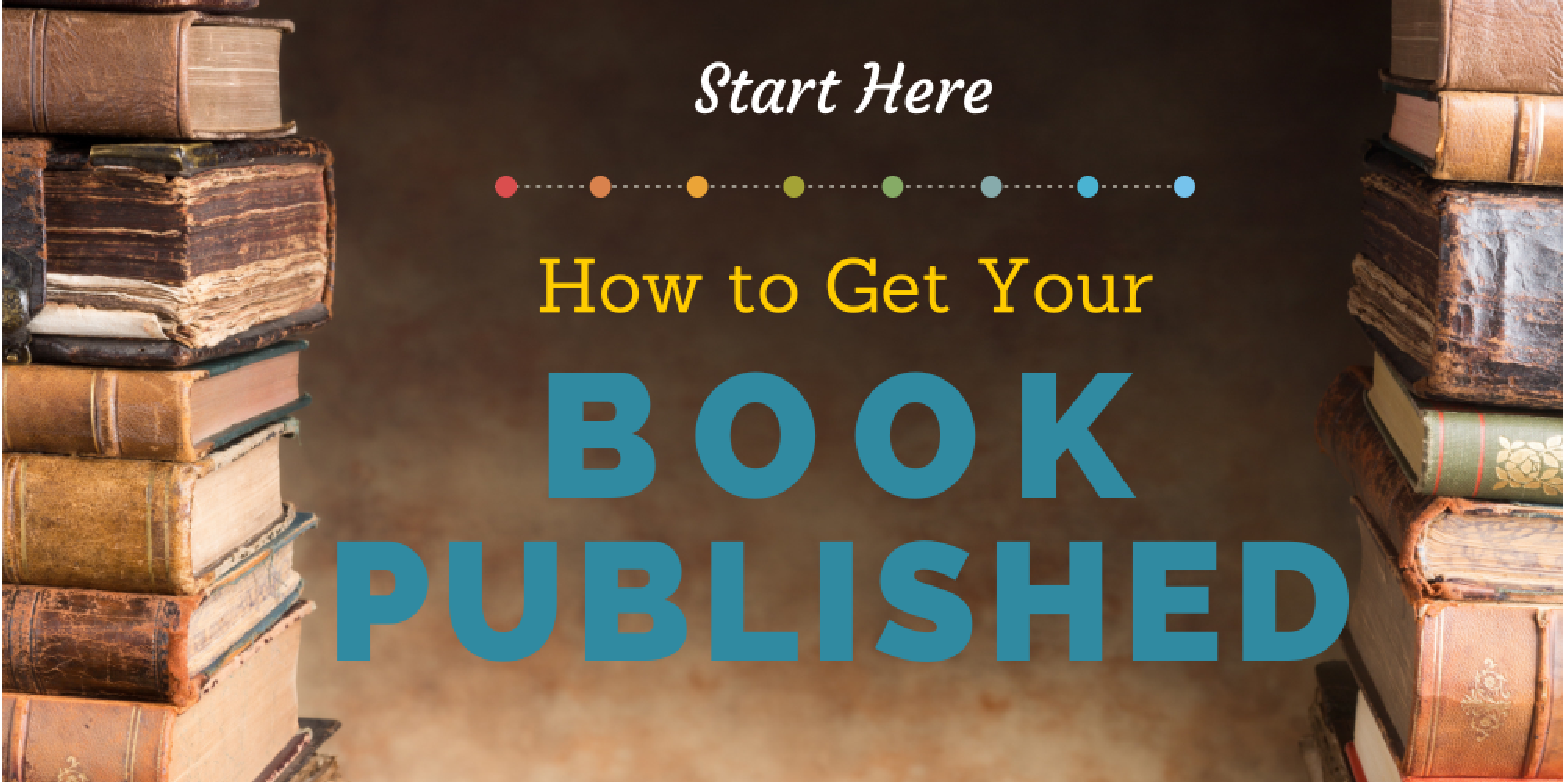
If you lot want to get your book published, yous have more than choices than ever to accomplish your goal. This mail service lays out the process in the simplest terms possible. Information technology is regularly revised and updated.
At that place are iii master paths to getting published:
- Detect a traditional publisher who will offer you a book contract. This is what virtually writers have in mind when they think of publishing their book. A traditional publisher pays you, the author, for the right to publish your work, nether certain terms and conditions.
- Rent a company to help y'all publish your volume. There are thousands of publishing services out at that place, some cheap and some expensive. Merely the main affair they take in common is that they charge the writer to publish. This includes hybrid publishers, assisted publishers, and publishing service companies.
- Cocky-publish. This is where you the author act as the publisher, and hire the help yous need to publish and sell your work, most often through Amazon and other major retailers.
This post focuses on finding a traditional publisher.
In a traditional publishing system, publishers assume all costs and pay you an accelerate and royalties. You must persuade them to take your work past submitting an effective pitch or manuscript.
Non sure if you should traditionally publish or self-publish? Here's how to make a decision.
4 steps to getting a book published
Getting your volume traditionally published is a step-by-step procedure of:
- Determining your genre or category of work.
- Finding advisable agents or publishers for your work.
- Preparing your submissions materials (a query letter or proposal, usually).
- Submitting your materials to agents or editors.
Footstep 1. Determine your work's genre or category.
Publishers and agents frequently focus or specialize on certain types of work. They may publish only fiction or nonfiction; they may refuse to have poesy or memoir; and and then on. It's important to correctly place what you've written, at least in wide terms, so you tin can find the right publisher or agent to approach. Your genre or category also affects what materials you'll exist expected to submit.
- Novels and memoirs: About first-time authors must finish their manuscript earlier budgeted editors/agents. You may be very excited about your story idea, or about having a fractional manuscript, but it'due south almost never a good idea to submit your work at such an early phase. Finish the piece of work first—brand it the best yous possibly can. Seek out a writing critique grouping or mentor who tin can offering yous constructive feedback, so revise your story. Be confident that you're submitting your best work. One of the biggest mistakes new writers make is rushing to get published. In 99% of cases, at that place'southward no reason to rush.
- For most adult nonfiction (except memoir): Rather than completing a manuscript, you should write a volume proposal—like a business program for your volume—that will convince a publisher to contract and pay you to write the book. Discover out more information on book proposals and how to write one. You lot need to methodically research the market for your idea before you brainstorm to write the proposal.
- Children'due south piece of work: In virtually cases, you should have a finished manuscript. Children'south moving picture book writers do not need to provide or submit illustrations, just the manuscript.
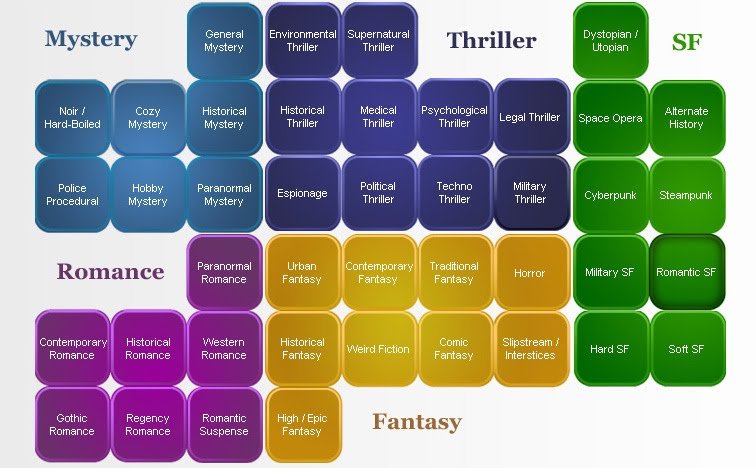
Some of the nigh common novel genres are: romance and erotica, women'southward fiction, historical, mystery, crime, thriller, and science fiction & fantasy. Commercial fiction is a term that'south often used interchangeably with "genre fiction" (romance, mystery, thriller, SFF, etc). Work that doesn't fall into a clear genre fiction category is sometimes called "mainstream fiction" by agents and publishers.
Upmarket fiction is a term about often applied to certain types of women'southward fiction—the sort of novel that gets chosen for book clubs. Literary fiction encompasses the classics you were taught in English language literature, as well as gimmicky fiction (east.one thousand., Jonathan Franzen, Margaret Atwood, or Hillary Mantel). For more on the distinctions hither, I recommend agent Carly Watter's post.

Some of the nigh popular nonfiction categories are: business concern, self-help, health, advice/relationships, personal development, and memoir.
Inside the publishing industry, nonfiction is oft discussed as falling under two major, broad categories: prescriptive (how-to, informational, or educational) and narrative (memoir, narrative nonfiction, creative nonfiction). You can get a sense of what nonfiction categories exist by browsing Amazon'south categories (meet their lefthand navigation) or just visiting a bookstore.
Books that are suitable for Big 5 publishing
Some books are more than commercial than others; anything falling into genre fiction is by default a commercial work. Most nonfiction, if it would be stocked in your average bookstore, is commercial. "Big Five" New York publishers are interested primarily in commercial work—work that is meant to sell in big retailers, big-box stores, etc.
The about important thing to retrieve is that not every book is cutting out to be published by a New York house, or represented by an agent, but almost writers have a hard time existence honest with themselves almost their work'due south potential.
Here are some rules of thumb about what types of books are suitable for a Big Five publisher:
- Genre or commercial fiction: romance, mystery, crime, thriller, scientific discipline fiction, fantasy, young developed, so on.
- Nonfiction books that would get shelved in your average Barnes & Noble or indie bookstore—which requires a strong hook or concept and author platform. Commonly a New York publisher won't sign a nonfiction book unless they anticipate selling 10,000–20,000 copies.
Works that can be difficult to sell:
- Books that exceed 120,000 words, depending on genre
- Poetry, short story, anthologies, or essay collections—unless yous're a known writer, or have a platform
- Nonfiction books by authors without expertise, authority, or visibility to the target audition
- Memoirs with common story lines—such every bit the death of a loved one, mental illness, caring for aging parents—just no unique angle into the story (you haven't sufficiently distinguished your feel—no claw)
- Literary and experimental fiction
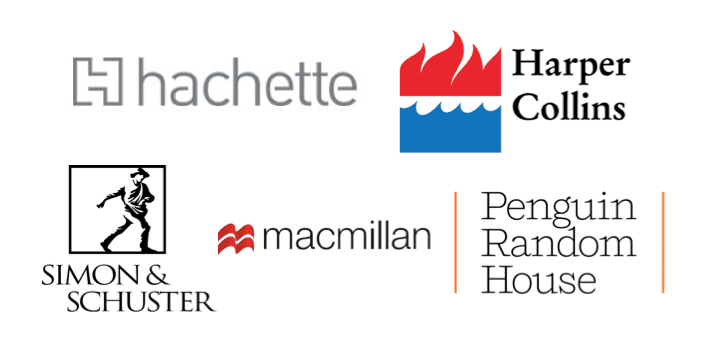
If you lot write fiction or memoir, the writing quality usually matters above all else if you want to be traditionally published. Read in your genre, practice your craft, and polish your work. Repeat this cycle endlessly. Information technology'south not likely your starting time try will get published. Your writing gets better with practice and time. You mature and develop.
If y'all write nonfiction, the marketability of your thought (and your platform) ofttimes affair as much every bit the writing, if not more and so. The quality of the writing may only demand to exist serviceable, depending on the category we're talking most.
If your piece of work isn't a adept candidate for a New York house, don't despair. There are many mid-size houses, contained publishers, small presses, university presses, regional presses, and digital-only publishers who might be thrilled to have your piece of work. You just need to find them. (Run across the side by side step.)
Deciding If You Need an Amanuensis
In today's market, probably 80 percent of books that the New York publishing houses acquire are sold to them by agents. Agents are experts in the publishing industry. They take inside contacts with specific editors and know ameliorate than writers what editor or publisher would exist most likely to buy a particular work.
Peradventure near important, agents negotiate the all-time deal for you, ensure y'all are paid accurately and fairly, and run interference when necessary between you lot and the publisher. The best agents are career advisers and managers.
Traditionally, agents get paid but when they sell your work, and receive a xv% committee on everything you get paid (your advance and royalties). Avoid agents who charge fees.
So … practise you need an agent?
It depends on what you're selling. If y'all want to exist published by one of the Large Five, most certainly.
If yous're writing for a niche market (east.g., vintage automobiles), or take an academic or literary piece of work, then y'all might not need one. Agents are motivated to represent clients based on the size of the advance they call back they tin can get. If your project doesn't command a sizable advance (at least 5 figures), then yous may not be worth an agent's time, and you'll have to sell the project on your ain.
Hither'southward how to detect literary agents and how to evaluate them.
Pace 2. Discover publishers and agents.
Once you know what you're selling, it'south fourth dimension to research which publishers or agents accept the blazon of work you've written. Once more, be enlightened that near New York publishers do not have unagented submissions—then this list includes where to find both publishers and agents. This is not an exhaustive list of where you tin can find listings, but a curated list assuming you want to focus on the highest-quality sources.
- Duotrope.com. Since the refuse of Author's Market (see below), this is the best database for identifying publishers. Subscription required.
- PublishersMarketplace.com. This is the best place to research literary agents; non only practise many have fellow member pages here, just yous tin search the publishing deals database by genre, category, and/or keyword to pinpoint the best agents for your work. Subscription required.
- QueryTracker.internet. Virtually 200 publisher listings and 1,000 amanuensis listings. Bones service is free.
- WritersMarket.com. Thousands of agent and publisher listings were once found hither, simply the site is currently inactive. You can attempt the print edition, or Jeff Herman'due south competing guide.

Some writers really dislike conducting this market place inquiry. While I think writers should undertake this task for themselves, if you prefer to rent someone to notice appropriate agents and publishers for y'all to submit to, attempt Copy Write Consultants.
Step 3. Prepare your submission materials.
Every amanuensis and publisher has unique requirements for submitting materials. The near common materials you'll exist asked for:
- Query letter. This is a 1-page pitch alphabetic character that gives a brief description of your work. (More than on this below.)
- Novel synopsis. This is a brief summary (unremarkably no more than than ane-2 pages) of your story, from kickoff to end. It must reveal the ending. Hither's how to write a novel synopsis.
- Nonfiction book proposal. These are circuitous documents, usually 20-30 pages in length, if not double that. For more explanation, see my comprehensive post.
- Novel proposal. This commonly refers to your query letter, a synopsis, and perchance the first chapter. There is non an industry standard definition of what a "novel proposal" is.
- Sample capacity. When sending sample chapters from your novel or memoir, start from the outset of the manuscript. (Don't select a eye affiliate, even if you think it's your all-time.) For nonfiction (not-memoir), usually any affiliate is acceptable.
The All-important Query Letter
The query letter of the alphabet is the time-honored tool for writers seeking publication. Information technology's essentially a sales letter of the alphabet that attempts to persuade an editor or agent to asking a full manuscript or proposal.
- Here'south my definitive postal service on writing a query for a novel.
- Here's how to write a query for a nonfiction book.
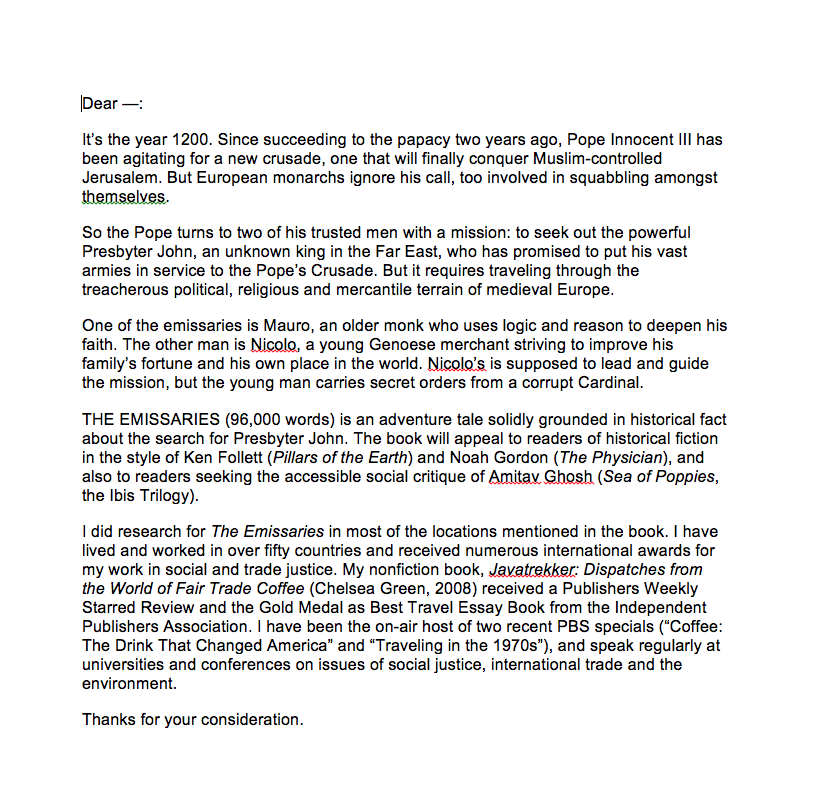
Stride 4. Submit your materials.
Almost no agent or editor accepts full manuscripts on starting time contact. This is what "No unsolicited materials" means when you lot read submission guidelines. However, almost every amanuensis or publisher will accept a one-page query letter unless their guidelines state otherwise. (If they exercise not accept queries, that ways they are a completely airtight market.)
After you ship out queries, you'll get a mix of responses, including:
- No response at all, which is commonly a rejection.
- A asking for a fractional manuscript and/or a synopsis.
- A asking for the full manuscript and/or synopsis.
If you lot receivenorequests for the manuscript or book proposal, then there might be something wrong with your query. Here is how to improve your query letter.
If you succeed in getting your textile requested, but then go rejected, at that place may be a weakness in the manuscript or proposal.
How Long Should Y'all Keep Querying?
Some authors are rejected hundreds of times (over a menstruation of years) before they finally get an credence. If you put years of time and try into a project, don't abandon information technology too rapidly. Await at the rejection slips for patterns about what's non working. Rejections tin exist lessons to improve your writing.
Ultimately, though, some manuscripts have to exist put in the drawer because there is no marketplace, or there isn't a fashion to revise the work successfully. Most authors don't sell their first manuscript, simply their 2d or third (or fourth!).
Protecting your rights
You take goose egg to fear in submitting your query or manuscript to an agent or publisher. If you're worried nearly protecting your ideas, well, you're out of luck—ideas can't be protected nether copyright, and no publisher or agent will sign a nondisclosure understanding or agree to talk with a paranoid author who doesn't trust them. (Just beingness blunt here.)
If you're worried nearly protecting your copyright, and then I have good news: your work, under police, is protected from the moment you put it in tangible form. You can find out more than about protecting your rights here.
Do you lot have to "know someone"?
No, only referrals, connections or communities can certainly help! See the related question below almost conferences.
The self-publishing option
Typically, writers who get frustrated by the endless process of submission and rejection frequently expect to self-publishing for satisfaction. Why waste endless months or years trying to please this or that picky agent/editor when you tin can easily get your book available on Kindle (or equally print-on-demand) at about no cost to y'all?
Such options may beget you the ability to hold your book in your hands, merely it rarely leads to your concrete book reaching bookstore shelves—which ends upwardly surprising authors who've been led to believe otherwise.
Self-publishing requires significant and persistent attempt into marketing and promotion, not to mention an entrepreneurial mindset. It unremarkably takes a few books out on the market earlier you can really gain momentum, and most kickoff-time authors don't like to hear that—they're not that committed to writing without an immediate payoff or some greater validation.
Finally, most self-published authors discover that selling their book is just every bit hard—if not harder than—finding a publisher or agent.
That said, independent authors are fiercely passionate nigh their work and their procedure, and some are much happier and satisfied going it alone. But those who succeed and profit frequently devote years of their life, if not their entire lives, to marketing and promoting their work. In short: It'due south a ton of work, like starting a small business concern (if yous practise it correct).
And then, you can self-publish, but information technology all depends on your goals and what will satisfy you lot. To acquire more: Beginning Here: How to Self-Publish Your Book.
Posting your piece of work online
Many writers wonder if they'll ruin their chances at traditional publication if they self-publish an ebook, use Wattpad, or put chapters on their website. In cursory, no, you are not ruining your chances. Read more nigh this issue here.
Navigating the publishing industry
- Publishing is a business, just like Hollywood or Broadway. Publishers, editors, and agents support authors or projects that will brand money and provide a good render on investment. It used to be that this return on investment could happen over a period of years or several books. Now, it needs to happen with i book and in less than one yr.
- Professionalism and politeness become a long way toward covering up any amateur mistakes you might make forth the way.
- Unless you live nether a lucky star, you volition become rejected once again and again and again. The query and submission procedure takes enormous dedication and persistence. We're talking about years of piece of work. Novelists and memoirists oft confront the biggest battle—there's enormous competition.
- Never call an agent or editor to query or ask questions (or just conversation) if you are not a client or writer. Never query by telephone—and I wouldn't do it fifty-fifty if the guidelines recommend it. Yous'll mess it upwardly.
- Agents and editors do not want you (a non-customer or author) to visit them at their offices. Practice non plan a visit to New York and get knocking on doors, and don't ask an agent/editor for a lunch or coffee appointment if you don't have a relationship already. If you'd like to interact with an amanuensis or editor, attend a writers conference.
- When working with a traditional publisher, y'all have to give up a lot of power and control. The publisher gets to determine the encompass, the title, the design, the format, the price, etc. You take to go through rounds of revisions and volition likely have to change things you don't want to change. Simply yous must approach the procedure similar a professional, not a high-maintenance artiste.
- You'll be far more than bonny to a publisher if they believe you'll exist an active marketer and promoter of your book. If you come to the tabular array with media savvy or an established platform (audience or readership), you'll have an easier time getting that kickoff bargain.
- For nonfiction authors: Don't become looking for a publishing deal because you need the say-so or platform that a book tin give y'all. Rather, you must already have the platform and authority, and thus be qualified to write a book. YOU bring the audience to the publisher, not the reverse.
Why you lot should nourish writing conferences
Your didactics and insight into the industry will accelerate exponentially. You'll gain an understanding that'south often impossible from only reading most information technology. You will meet agents and editors, and start to see them as real people. If you take an appointment or consultation with a publishing professional, it will shorten your path to publication. You can get the reasons, immediately, that an agent or editor may non be responding favorably to your work.
Many writers are familiar with the reasons to attend conferences, but not all sympathise how to get more out of them. Hither are 3 means you can get the most out of your experience.
- Select a briefing where you tin meet with a specific author, editor or agent who is absolutely ideal for your work (after lengthy and intensive research). Get a critique session or an date—but only if you feel like you've taken your work as far as you possibly tin on your ain. This is important.
- During any formal appointments or critiques, program to talk most twenty-thirty% of the time. Earlier meeting, develop a specific list of questions that, if you had the answers, you would know specifically what your next steps are (for your project or your career) when you leave. Do not attend any appointment expecting to be offered a bargain or representation. Get for the learning experience and the opportunity to have a professional consultation. That'south what it is.
- Closely study the backgrounds/bios of every speaker, amanuensis, and editor who is attending. Be knowledgeable for any take chances conversations you lot take; having this knowledge volition also spark questions yous could ask during panels or social hours. Don't be the person who asks the obvious question yous could've figured out past paying attending to the program. Delve deeper. Make your questions count.
Here is my comprehensive guide to writing conferences.
When to hire professional help
Should yous hire a freelance editor to aid improve your manuscript before submitting? There's no one right answer for everyone, but I talk over considerations and guidelines here.
Reasons y'all might fail to get published
- You blitz to submit your work before information technology's ready. This is particularly truthful of writers who are dizzy with excitement after completing their very first book-length manuscript. Simply if you've just spent months (or years!) writing a manuscript, why rush it to an agent or editor, and why rush information technology to just any amanuensis or editor? And why blitz information technology if you're new to the publishing business?
- Your story premise or book concept lacks originality. A novel or memoir needs to experience "fresh," relevant to today's readers, and non derivative of existing bestsellers. (What's "fresh" is subjective, of grade.) How practise you know if your idea is tired by an agent'due south standards? Reading lots of pop fiction helps; it helps y'all learn what'southward been done already, and how you lot might add your own twist. Hither's a post on improving your story premise.
- Information technology'due south tough to attain objectivity. When you lot finish a significant manuscript or proposal that took a long fourth dimension to complete, you need time away and distance to appraise its strengths and weaknesses.
- It's tough to make progress without a mentor. A good critique partner can exist invaluable to your growth every bit a writer. When you don't have the time or willingness to accept enough steps back from your work, or see its flaws, others can offer a really hard push.
- It'southward like shooting fish in a barrel to have validation from family and friends as a sign you ought to write and publish. Has your family unit encouraged you? Have your friends told you that you're a brilliant writer? Do your children love your stories? While you lot need support, you also demand to ignore what these people are telling you. They're not publishing professionals. You need to write because you can't do annihilation else. Considering you would suffer if you didn't. Your motivation to write has to come from within. Don't write (only) because you were given validation or permission by someone close to you. What you lot really need (require) is your own inner conviction.
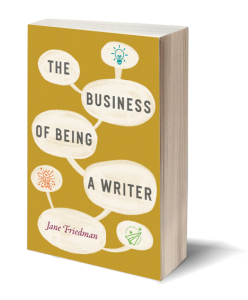
Likewise consider: What is your motivation for trying to get published? A footling self-reflection might be in order earlier you chase later on an agent or publisher. Read my mail 3 Questions Every Creative Person Must Ask.
More often than not what this game boils down to is patience. If y'all don't have it, you will get frustrated and surrender.
If you lot're looking for more in-depth guidance:
- My book:The Business of Beingness a Writer
- Consider my query letter master class if you're preparing to query in the virtually time to come.

Jane Friedman (@JaneFriedman) has xx years of experience in the publishing industry, with expertise in digital media strategy for authors and publishers. She is the publisher of The Hot Sheet, the essential newsletter on the publishing industry for authors, and was named Publishing Commentator of the Yr by Digital Book World in 2019.
In improver to being a columnist forPublishers Weekly, Jane is a professor with The Great Courses, which released her 24-lecture series, How to Publish Your Book. Her volume for creative writers, The Business of Existence a Writer (University of Chicago Press), received a starred review from Library Journal.
Jane speaks regularly at conferences and industry events such as BookExpo America, Digital Book World, and the AWP Conference, and has served on panels with the National Endowment for the Arts and the Creative Piece of work Fund. Find out more.
How To Approact An Agent To Book On Of Their Acts Template,
Source: https://www.janefriedman.com/start-here-how-to-get-your-book-published/
Posted by: pullinsciarger.blogspot.com


0 Response to "How To Approact An Agent To Book On Of Their Acts Template"
Post a Comment